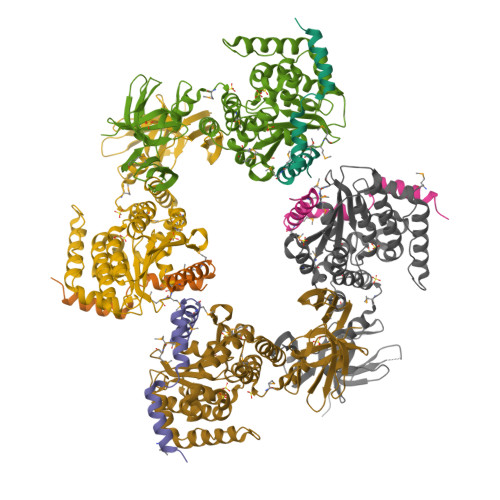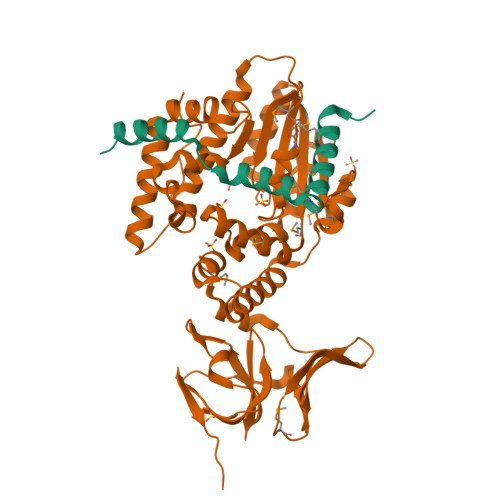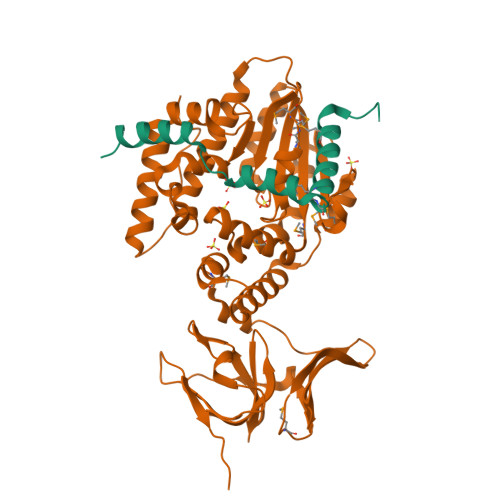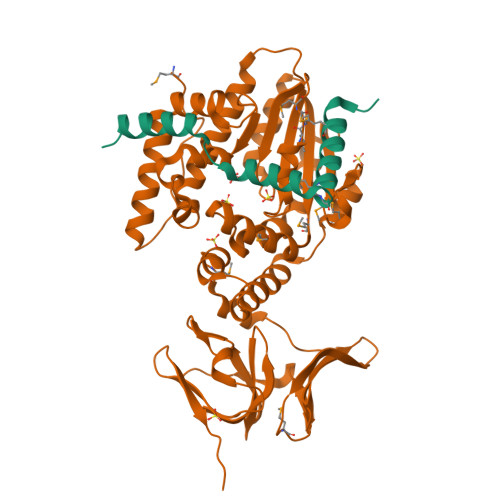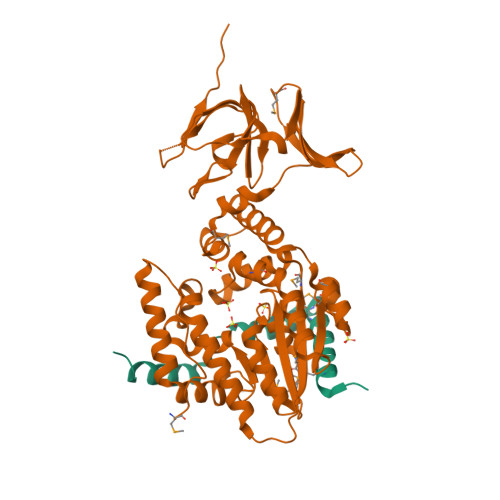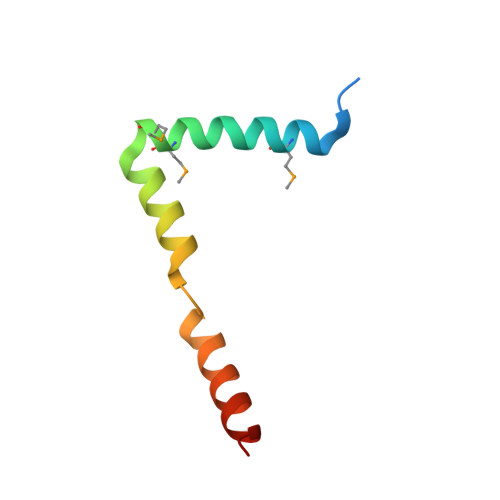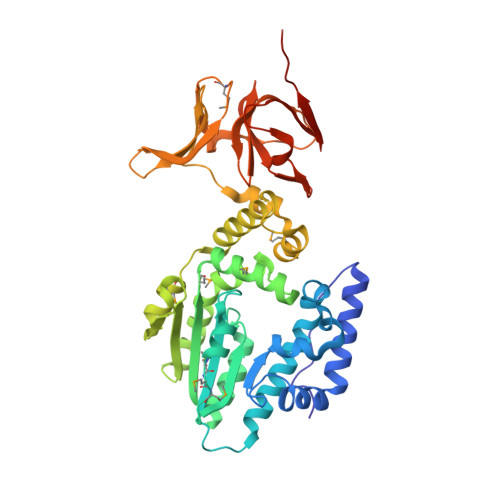The ng_ zeta 1 toxin of the gonococcal epsilon/zeta toxin/antitoxin system drains precursors for cell wall synthesis.
Rocker, A., Peschke, M., Kittila, T., Sakson, R., Brieke, C., Meinhart, A.(2018) Nat Commun 9: 1686-1686
- PubMed: 29703974
- DOI: https://doi.org/10.1038/s41467-018-03652-8
- Primary Citation of Related Structures:
6EPG, 6EPH, 6EPI - PubMed Abstract:
Bacterial toxin-antitoxin complexes are emerging as key players modulating bacterial physiology as activation of toxins induces stasis or programmed cell death by interference with vital cellular processes. Zeta toxins, which are prevalent in many bacterial genomes, were shown to interfere with cell wall formation by perturbing peptidoglycan synthesis in Gram-positive bacteria. Here, we characterize the epsilon/zeta toxin-antitoxin (TA) homologue from the Gram-negative pathogen Neisseria gonorrhoeae termed ng_ɛ1 / ng_ζ1. Contrary to previously studied streptococcal epsilon/zeta TA systems, ng_ɛ1 has an epsilon-unrelated fold and ng_ζ1 displays broader substrate specificity and phosphorylates multiple UDP-activated sugars that are precursors of peptidoglycan and lipopolysaccharide synthesis. Moreover, the phosphorylation site is different from the streptococcal zeta toxins, resulting in a different interference with cell wall synthesis. This difference most likely reflects adaptation to the individual cell wall composition of Gram-negative and Gram-positive organisms but also the distinct involvement of cell wall components in virulence.
Organizational Affiliation:
Department of Biomolecular Mechanisms, Max Planck Institute for Medical Research, Jahnstr. 29, 69120, Heidelberg, Germany.








